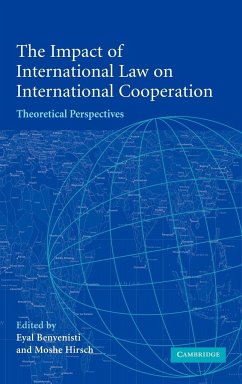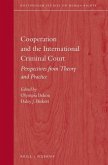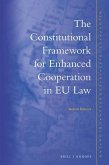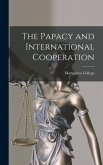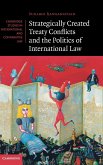Short description/annotation
International law and international relations scholars analyse the factors that enhance or impede cooperation among states.
Main description
This book aims at advancing our understanding of the influences international norms and international institutions have over the incentives of states to cooperate on issues such as environment and trade. Contributors adopt two different approaches in examining this question. One approach focuses on the constitutive elements of the international legal order, including customary international law, soft law and framework conventions, and on the types of incentives states have, such as domestic incentives and reputation. The other approach examines specific issues in the areas of international environment protection and international trade. The combined outcome of these two approaches is an understanding of the forces that pull states toward closer cooperation or prevent them from doing so, and the impact of different types of international norms and diverse institutions on the motivation of states. The insights gained suggest ways for enhancing states' incentives to cooperate through the design of norms and institutions.
Table of contents:
1. Introduction Eyal Benvenisti and Moshe Hirsch; 2. International law and international relations theory Anne-Marie Slaughter; 3. Transformation: alternative pathways to international legalization Kenneth W. Abbott and Duncan Snidal; 4. Customary international law as a judicial tool for promoting efficiency Eyal Benvenisti; 5. Reputation, cooperation and development George W. Downs and Michael A. Jones; 6. Rethinking compliance with international law Edith Brown Weiss; 7. Compliance with international norms in the age of globalization: two theoretical perspectives Mosche Hirsch; 8. Compliance and non-compliance with international norms in territorial disputes: the Latin American record of arbitrations Arie M. Kacowicz; 9. International trade and domestic politics: the domestic sources of international trade agreements and institutions Helen V. Milner; 10. Human rights, developing countries and the WTO constraint: the very thing that makes you rich makes me poor(?)33; Petros C. Mavroidis; 11. Back to court after Shrimp/Turtle: India's challenge to labor and environmental linkages in the EC generalized system of preferences Robert Howse.
International law and international relations scholars analyse the factors that enhance or impede cooperation among states.
Main description
This book aims at advancing our understanding of the influences international norms and international institutions have over the incentives of states to cooperate on issues such as environment and trade. Contributors adopt two different approaches in examining this question. One approach focuses on the constitutive elements of the international legal order, including customary international law, soft law and framework conventions, and on the types of incentives states have, such as domestic incentives and reputation. The other approach examines specific issues in the areas of international environment protection and international trade. The combined outcome of these two approaches is an understanding of the forces that pull states toward closer cooperation or prevent them from doing so, and the impact of different types of international norms and diverse institutions on the motivation of states. The insights gained suggest ways for enhancing states' incentives to cooperate through the design of norms and institutions.
Table of contents:
1. Introduction Eyal Benvenisti and Moshe Hirsch; 2. International law and international relations theory Anne-Marie Slaughter; 3. Transformation: alternative pathways to international legalization Kenneth W. Abbott and Duncan Snidal; 4. Customary international law as a judicial tool for promoting efficiency Eyal Benvenisti; 5. Reputation, cooperation and development George W. Downs and Michael A. Jones; 6. Rethinking compliance with international law Edith Brown Weiss; 7. Compliance with international norms in the age of globalization: two theoretical perspectives Mosche Hirsch; 8. Compliance and non-compliance with international norms in territorial disputes: the Latin American record of arbitrations Arie M. Kacowicz; 9. International trade and domestic politics: the domestic sources of international trade agreements and institutions Helen V. Milner; 10. Human rights, developing countries and the WTO constraint: the very thing that makes you rich makes me poor(?)33; Petros C. Mavroidis; 11. Back to court after Shrimp/Turtle: India's challenge to labor and environmental linkages in the EC generalized system of preferences Robert Howse.

